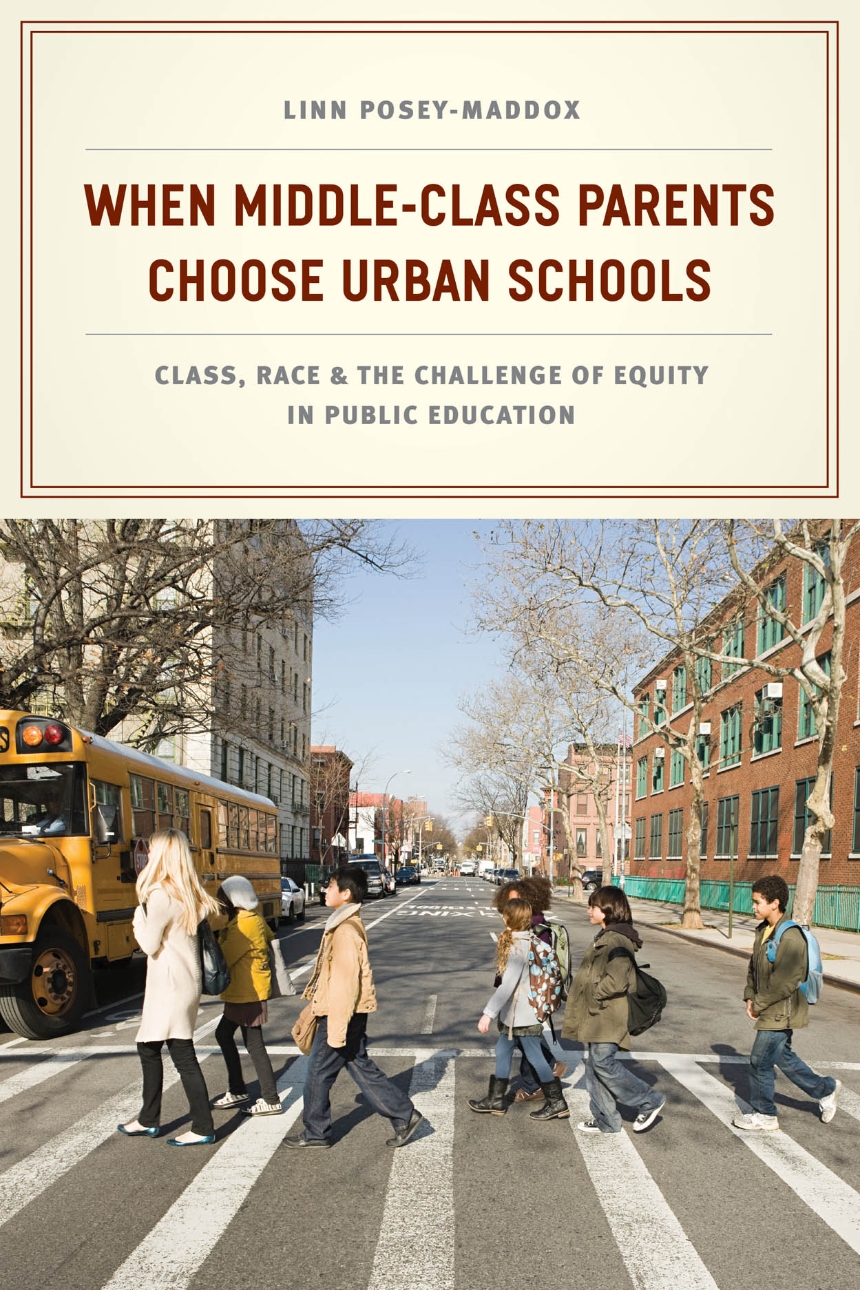When Middle-Class Parents Choose Urban Schools
Class, Race, and the Challenge of Equity in Public Education
When Middle-Class Parents Choose Urban Schools
Class, Race, and the Challenge of Equity in Public Education
Drawing on in-depth research at an urban elementary school, Posey-Maddox examines parents’ efforts to support the school through their outreach, marketing, and volunteerism. She shows that when middle-class parents engage in urban school communities, they can bring a host of positive benefits, including new educational opportunities and greater diversity. But their involvement can also unintentionally marginalize less-affluent parents and diminish low-income students’ access to the improving schools. In response, Posey-Maddox argues that school reform efforts, which usually equate improvement with rising test scores and increased enrollment, need to have more equity-focused policies in place to ensure that low-income families also benefit from—and participate in—school change.
232 pages | 2 line drawings, 4 tables | 6 x 9 | © 2014
Education: Education--Economics, Law, Politics, Pre-School, Elementary and Secondary Education
Sociology: Social Institutions
Reviews
Table of Contents
List of Illustrations and Tables
Acknowledgments
One / Middle-Class Parents and City School Transformation
Two / Reconceptualizing the “Urban”: Examining Race, Class, and Demographic Change in Cities and Their Public Schools
Three / Building a “Critical Mass”: Neighborhood Parent Group Action for School Change
Four / The (Re)Making of a “Good” Public School: Parent and Teacher Views of a Changing School Community
Five / Professionalizing the MPTO: Race, Class, and Shifting Norms for “Active” Parents
Six / Morningside Revisited
Seven / Maintaining a “Commitment to Everyone”: Toward a Vision of Equitable Development in Urban Public Schooling
Appendix A / Social Class Categories
Appendix B / Methodological Approach
Notes
References
Index
